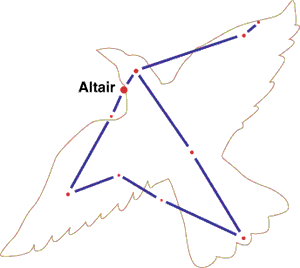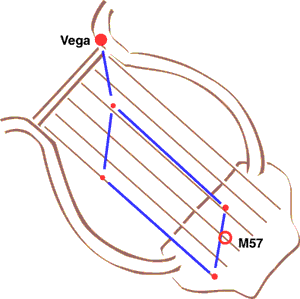When all is said and done, more is said than done.
~ Margaret Greenberg (from here)
Happiness is when what you think, what you say, and what you do are in harmony.
~ Mohandas Gandhi (from here)
Senia Maymin, Ph.D. – Brave Job Search
Senior Leaders: Get a new job *before* you get laid off
Tuesday, Thursday, and Friday features.
“There’s a new way of creating in the world. I was just talking to a man who is very driven in his work in the stock market, and he said success is all a matter of will, and I said, no, I think it’s all a matter of belief.
“We talked about the image of sandpipers on the beach: they run up, get all the delicious food in the sand, then run back – and their feet never get wet. They’re always in harmony, and in rhythm with the ebb and flow of the ocean. And what’s happening with women now is they are bringing to the party of life the concept of that ebb and flow with natural law. There’s no willfulness around it. Willfulness is masculine energy, which this society has been built on, but it is not the natural way.
“And that’s what you need to do. You don’t finish the ten thousand things on the list, and then get to you, who is ten thousand and one; what you want to do is make a practice of what centering and what quietude really is. And quietude is actually flowing with the flow – back to the sandpiper again. He’s not frantic, running back and forth; he’s rhythmic with the flow.'”
“[O]ur lives inherently have the power and unlimited capacity of a mighty river. … Then through positive energy rituals to train our physical, emotional, mental and spiritual capacities, we will create a dam to harness the power of the river and continually refresh the lake that is our life.”
Dana Arakawa, paraphrasing Greg Martin
I’ve been facilitating a wonderful workshop on Resilience for teachers – so that the teachers can teach their 10-14 year old students. It has been two weeks of intensity, great ideas, strong commitment from the teachers, and a fabulous interaction between the facilitators. Today is the last day.
How do I like to say goodbye? Quickly. With expectation of soon-again-next-time. Smiling. With gratitude. Like a little girl running away from a fun wave on the shore, expecting to be back next summer.
How do you like to say goodbye?
Where does the term “degugging” come from?
Welcome to Quote Thursdays. Is this below quote familiar to you?
“A ship in port is safe, but that’s not what ships are built for.”
~ Grace Murray Hopper
This is Admiral Grace Murray Hopper,who is described in a quote bio as “the American computer pioneer, was the first woman to become a Distinguished Fellow of the British Computer Society. She was born in 1906 in New York. By age seven, she was taking alarm clocks apart to see how they worked. She worked for the U.S. Navy developing the first compiler, which allowed people to write computer programs in real language rather than machine code. When she found a moth inside a computer, she coined the term “debugging.” She died in 1992.”
I earlier described what I mean by a quote bio here. Wikipedia backs up this history of the origin of “debugging,” although adding that in non-computer circles such as aeronautics the term had had some popularity prior to Hopper.
***
* If you liked this post, you might like the thought about the Ctrl+Z button of your life.
* The above information came to me from a quote bio.
We wrote before about the interview question that you may most dread, and there were some great comments there that we’ll go back to in future posts.
What is the question you consistently ace in interviews?!!?
And what are some of the ways that you address the question successfully?
Do not be too timid and squeamish about your actions. All life is an experiment.
~ Ralph Waldo Emerson
If that’s true, then you should jump into the experiments… so double up on courage, and treat all of life as an experiment…
Courage is rightly esteemed the first of human qualities… because it is the quality which guarantees all others.
~ Winston Churchill
And once you have that courage, get EVEN MORE COURAGEOUS because you’ve got nothing to lose by flaunting it all …
Don’t be so humble, you’re not that great.
~ Golda Meir
Happiness is when what you think, what you say, and what you do are in harmony.
~ Mohandas Gandhi
This is one of my three favorite holidays.
It is a love story in Japan.
If you make a wish on this day, and if it does not rain, then your wish will come true! This year it is especially lucky because it is the seventh day of the seventh month of the seventh year.
Here’s the story as I wrote about it last year. It is a colorful, wildly fun holiday, and I wish I were in Japan this year for this holiday!


(Images from here).
THE TWO STARS:
Tanabata means “Festival of the stars.” This is a story about the two stars Altair (the boy) and Vega (the girl) which are the main stars in two constellations, Aquila the eagle and Lyra the musical lyre:


THE LOVE STORY:
There was a girl named Orihime – she was the daughter of the Sky God and she wove beautiful weavings. One day, she looked out of her window and saw the oxen-boy, Hikoboshi, and they fell in love. They spent so much time together that she didn’t have any time to weave, and so the Sky God separated the two, and allowed them to only meet each other on the seventh of the seventh.
Why is the Milky Way involved? “In the Chinese Calender, there is almost always a half moon on July 7th and they believe ORIHIME and [HIKOBOSHI] use that half moon as a boat to meet each other over the great river in the sky, AMANOGAWA [the Milky Way],” reports this site.
YOUR ROLE:
As long as the Milky Way does not overflow, everyone’s wish will come true on this day. So you can put on your bright summer cotton kimono, called the “yukata,” and you can go dancing in the parks, and you can write your wishes on brightly colored paper (as Dave describes here!) and tie them to a plant (in Japan, it would be a bamboo tree). And finally, you make that wish wholly and deliberately, and then you let go….
Tanabata is a really fun holiday. What will you write down on bright, colored paper ribbons to tie to the trees?
Toss your answers in the comments please, and enjoy the weekend!
Best,
Senia
The most beautiful fate, the most wonderful good fortune that can happen to any human being, is to be paid for doing that which he passionately loves to do.
~ Abraham Maslow